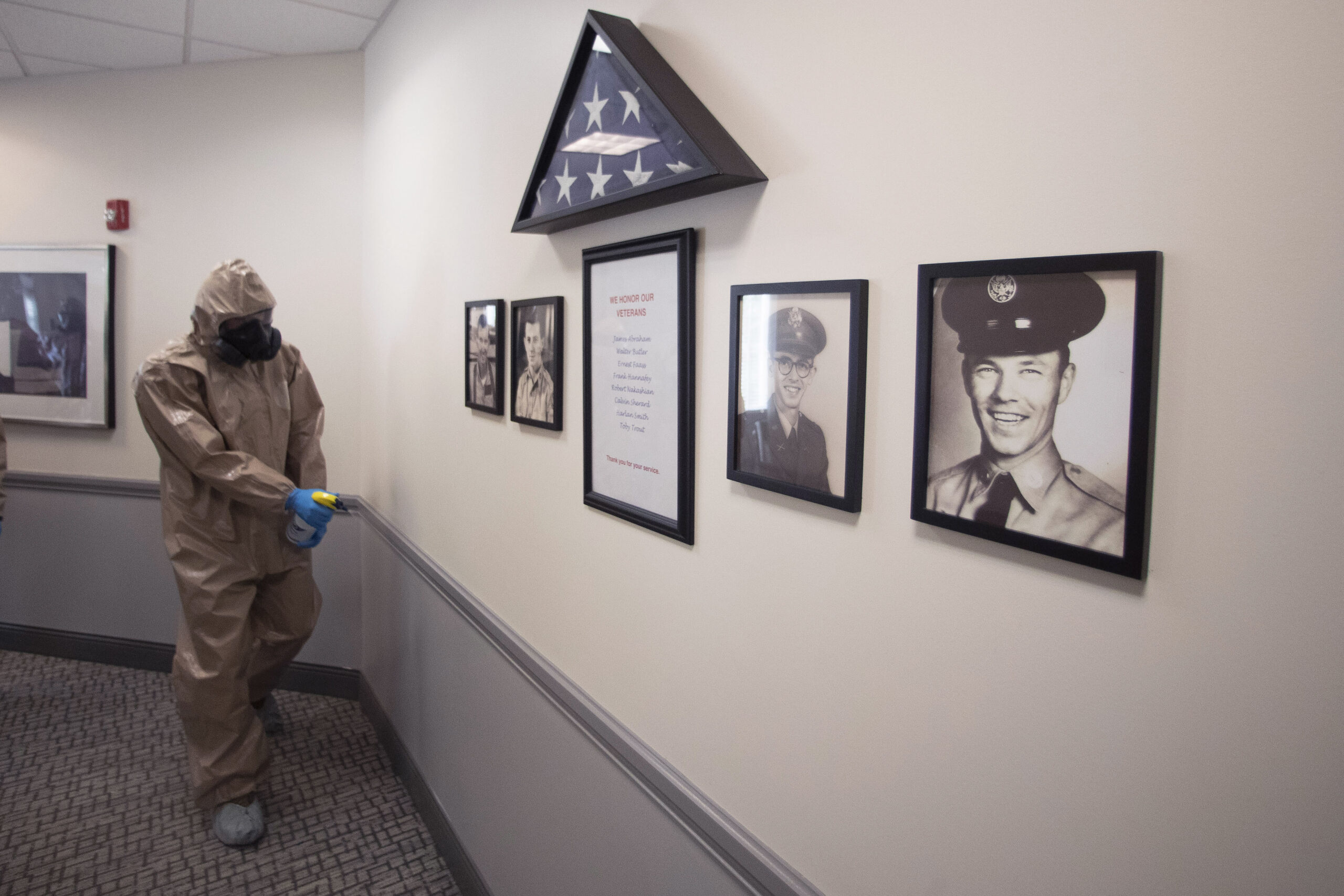Gov. Brian Kemp warned on Tuesday that a growing coronavirus outbreak is stressing resources in northeast Georgia.
Kemp has moved aggressively to allow businesses to reopen even though infections are on the rise in some areas of the state. He made his remarks about northeast Georgia while touring a temporary medical pod in the southwestern city of Albany, one of the state’s earliest and worst hot spots for COVID-19.
The state Department of Public health reports that nearly 30,000 Georgians have had coronavirus infections confirmed by a test. About 1,300 in the state of 10.6 million people have died.
Gainesville, a city about 50 miles northeast of Atlanta that is synonymous with Georgia’s large poultry industry, is quickly becoming one of the state’s most affected areas.
Per-capita infection rates in Gainesville’s Hall County and in nearby Habersham County are now in the top 10% of counties statewide, a list that otherwise remains mostly dominated by counties in south and southwest Georgia.
“They’re being stressed pretty hard up there at the moment,” Kemp said Tuesday while touring a temporary medical pod in southwest Georgia, according to the Atlanta Journal-Constitution. The Republican governor said contract medical workers have been sent to the Gainesville area to help fight the outbreak. A temporary medical pod is planned there as well.
Dave Palmer, spokesman for a 13-county public health district based in Gainesville, said the district has been sending out messages in Spanish as well as English, hoping to reach the large Spanish-speaking population concentrated in Hall County. Palmer said the district has also been holding weekly conference calls with poultry processors, encouraging them to communicate with employees about signs of illness and how to prevent infection.
Georgia became a lightning rod for criticism in the national debate over reopening when Kemp moved to allow businesses such as tattoo parlors, bowling alleys and hair and nail salons to reopen with restrictions in late April. Restaurants and movie theaters have since been able to welcome customers back in on a limited basis, and a statewide shelter-at-home order has expired.
Kemp has repeatedly defended the push by saying it was backed by experts and data, including steadily growing numbers of tests being reported to the state.
“Our goal is to use every single test we’ve got every single day and … try to break the system,” Kemp told The Associated Press last week.
Although there have been one-day totals that were higher, the total number of tests reported each day in Georgia has averaged between 7,000 and 8,000 a day in the past week. That’s nearly double what the state was averaging when Kemp started his push to expand testing. The state has reached Public Health Commissioner Kathleen Toomey’s stated goal of getting to 200,000 total tests.
But efforts to expand testing are showing strain, with mobile testing sites paused this week because of problems with information flow and reporting results to those tested.
Dr. Philip Coule, chief medical officer of Augusta University Health, said on Tuesday that full mobile testing was unlikely to resume until Thursday. He said about 2,000 test results — about two days’ worth — are backlogged.
“We’re committed to maximizing testing for Georgians and we’re committed to making sure Georgians are getting their results in a timely manner,” Coule said.
The pause follows complaints about delays in people getting results. The state cobbled together additional lab capacity at universities that don’t usually perform medical testing for individual patients, and Coule said information flow has been a problem. He said test site workers are also being retrained to collect full information to allow matching of tests with individual identities. The call center at Augusta University sometimes has difficulty notifying people who may not answer their phone, Coule also said.
Toy Jackson, a flight attendant, told WSB-TV on Friday that she had been tested at a mobile site in Atlanta on April 24 and had gone a week without hearing back.
“And they guaranteed 72-hour results,” Jackson said.
There are other obstacles besides information flow. Coule said Augusta’s labs could run another 1,000 tests a day on existing machines, but can’t obtain the chemicals needed.
In another facet of Georgia’s effort, the National Guard continues to disinfect long-term care facilities.
Pat Mobley, executive director of the Provident Village assisted living and memory care home, proudly displayed a large envelope with results from last week’s 100% negative COVID-19 tests. But Mobley, a veteran of the MERS virus outbreak in New Jersey, said she “just couldn’t decline their help.”
As the team of young soldiers moved through the 5-year-old facility, their thick suits made an eerie crunching sound in quiet hallways. For an hour, they sprayed tables in a now unused dining room, and disinfected the activity rooms and hallway railings.









